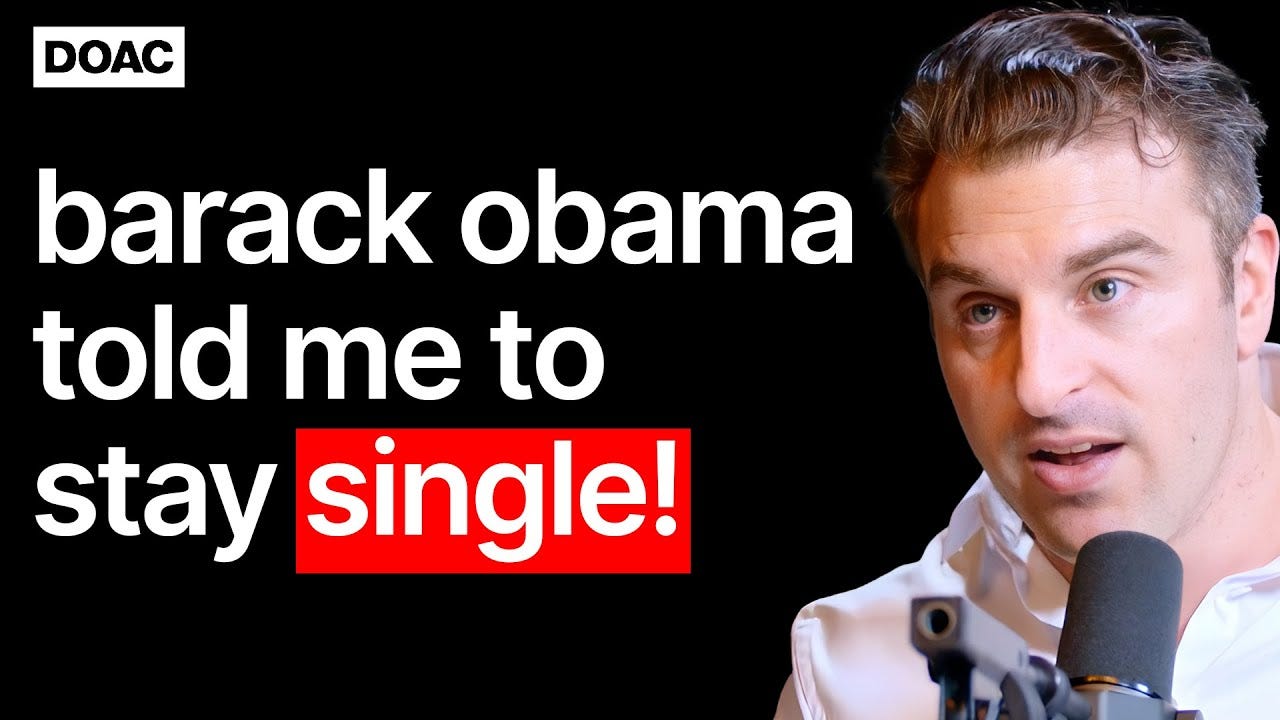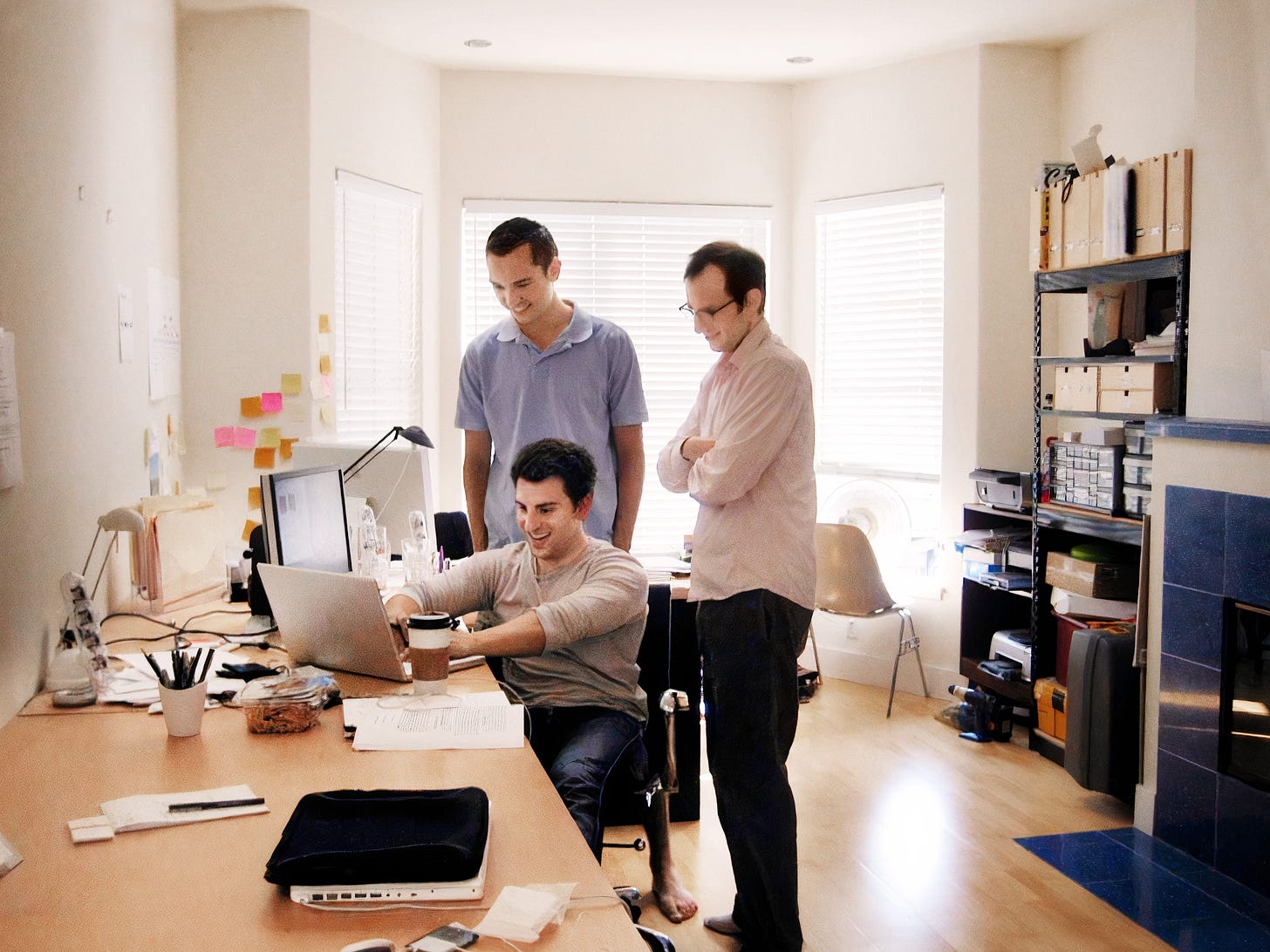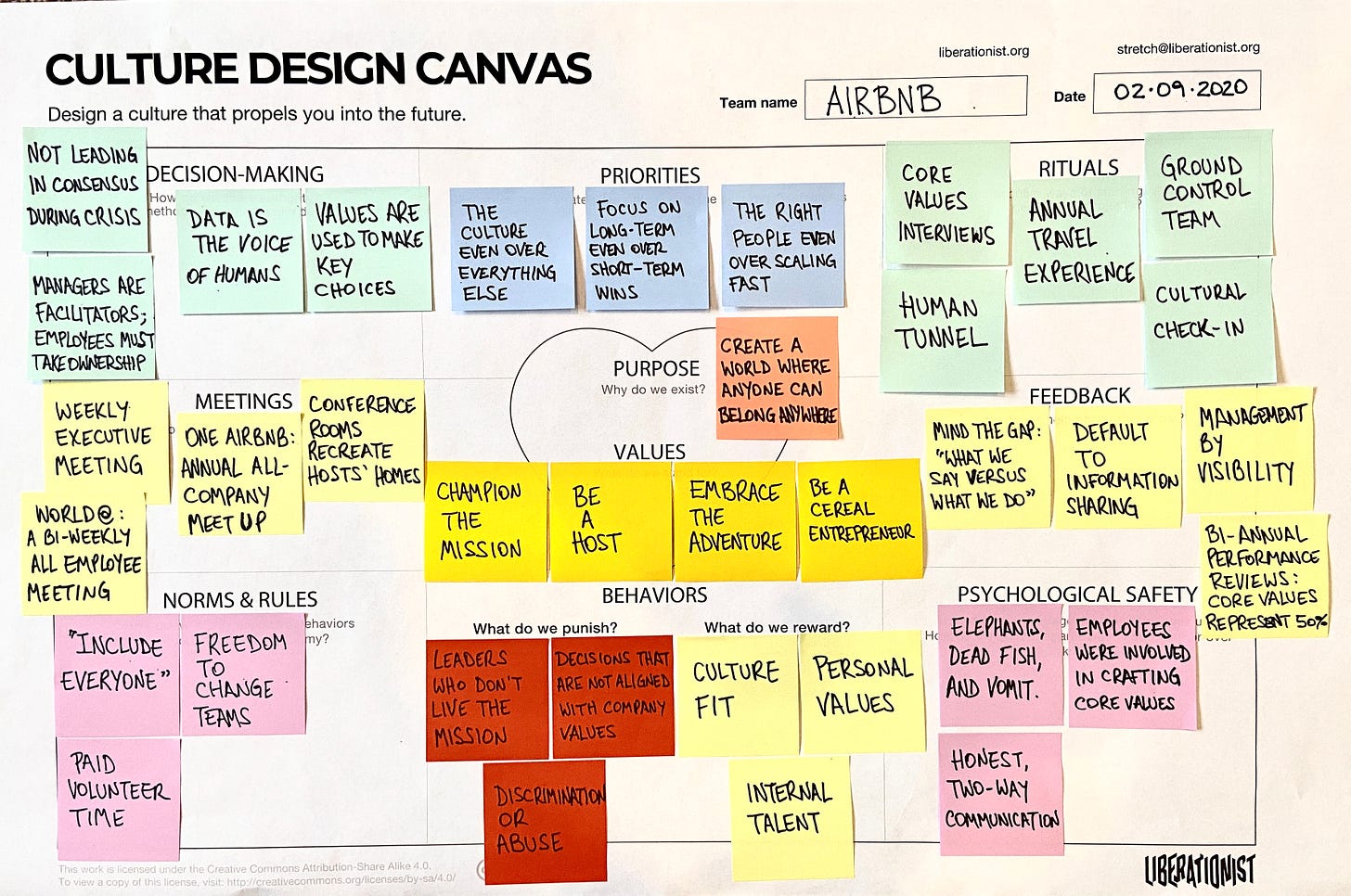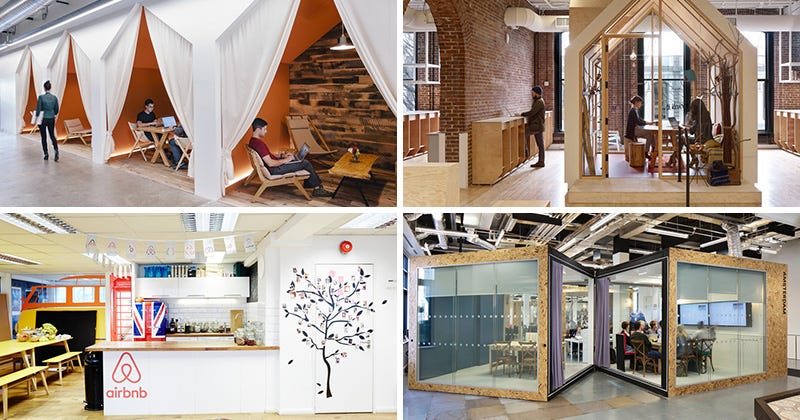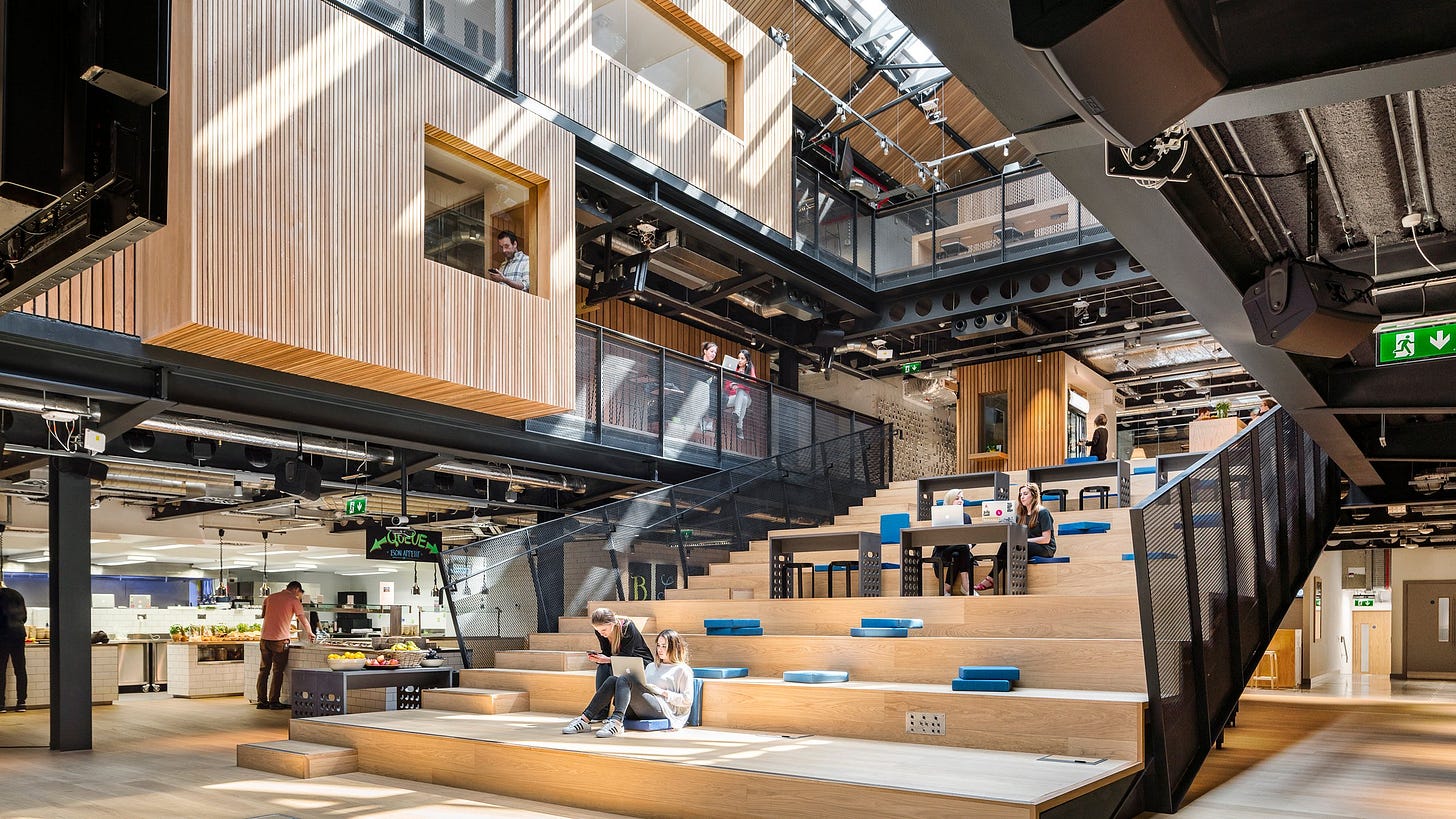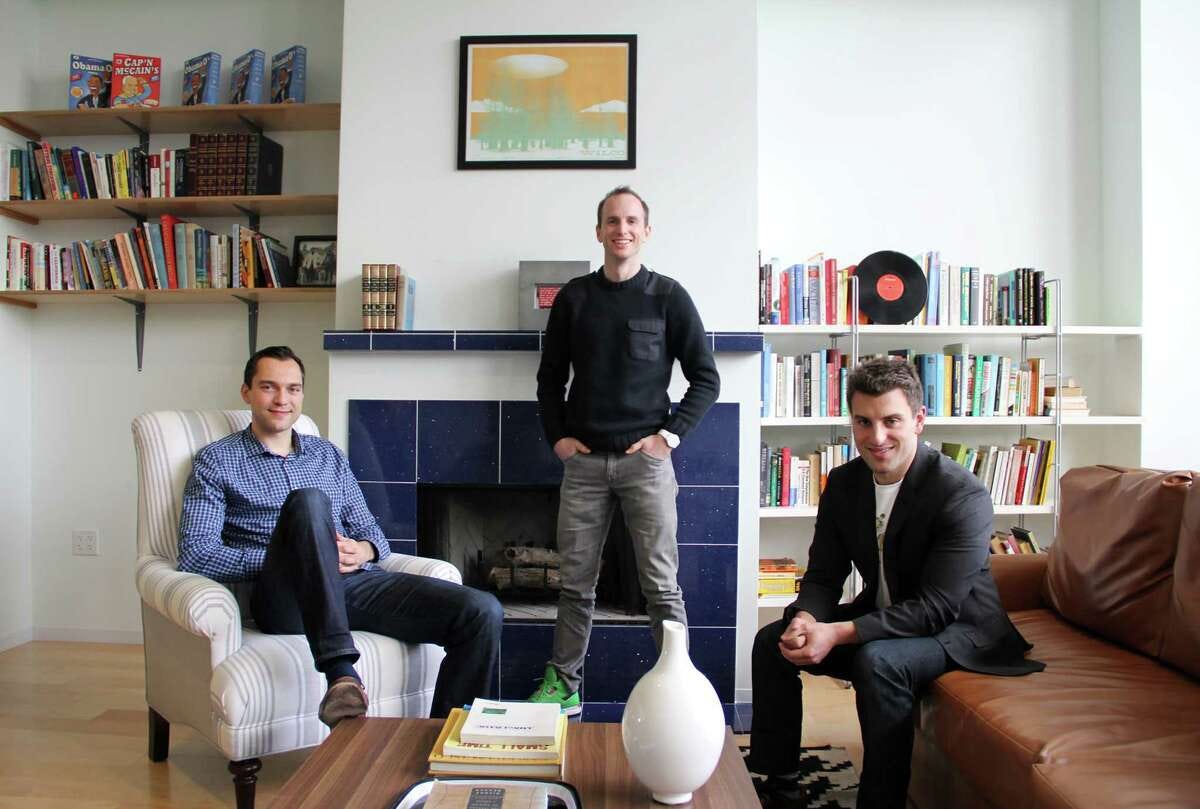Brian Chesky: "Tôi đã cô độc khi Airbnb trị giá $100B"
Podcast này kể về những câu chuyện cá nhân của Brian Chesky mà đa phần mình chưa nghe thấy ở đâu khác. Từ nhỏ, Brian là người rất sáng tạo và muốn thiết kế những thế giới riêng để thoát khỏi cảm giác
Từ 2015, Brian Chesky là một trong những CEO mình follow và respect nhất trong tất cả các startups. AirBnb được thành lập năm 2007. Thời kỳ ban đầu Airbnb gặp rất nhiều khó khăn để shapen được business model của mình. Ba co-founders Brian Chesky, Nathan Blecharczyk, và Joe Gebbia, có những thời điểm để sinh tồn, phải bán ngũ cốc in hình Obama, tận dụng chiến dịch tranh cử của Obama để kiếm $30k giúp công ty sống sót. Airbnb thời kỳ đầu có văn hóa đổi CEO mỗi năm, rotate quanh 3 bạn co-founder. Tuy nhiên, sau một thời gian, Airbnb dưới sự dẫn dắt của Brian Chesky trải qua nhiều sóng gió, anh được bầu là permanent CEO của Airbnb từ đó đến giờ.
Podcast này kể về những câu chuyện cá nhân của Brian Chesky mà đa phần mình chưa nghe thấy ở đâu khác. Từ nhỏ, Brian là người rất sáng tạo và muốn thiết kế những thế giới riêng để thoát khỏi cảm giác uncomfortable xung quanh. Anh theo học thiết kế công nghiệp để thỏa mãn đam mê thiết kế vật thể và không gian.
Obsession with Airbnb
Brian thừa nhận mình từng nghiện công việc, nghĩ rằng thành công sẽ mang lại tình yêu và kết nối. Nhưng anh nhận ra rằng thành tựu không hẳn đã khiến bạn cảm thấy hạnh phúc. Anh cũng không ngờ khởi nghiệp lại cô đơn đến thế. Tuy nhiên, Brian không bao giờ cảm thấy hối hận. Nếu được làm lại anh cũng lựa chọn như vậy, vì nhờ vậy mà anh đã xây dựng được Airbnb như ngày hôm nay.
Start Small, Dream Big: Chiến lược scaling của Airbnb
Airbnb thời kỳ đầu bị từ chối bởi tất cả investors họ gặp phải. Bởi thị trường của Airbnb lúc đó chưa có. Không ai nghĩ đến thị trường đó, nhưng thực tế đây lại là thị trường lớn nhất mà mọi người bỏ qua. Nhưng Brian và hai cofounders còn lại không bao giờ từ bỏ. Brian nhấn mạnh rằng, muốn làm lớn, hãy tập trung làm những thứ nhỏ nhất. Ví dụ: Tập trung vào 100 users đầu tiên của nền tảng.
Tầm quan trọng của Sáng tạo
Brian tin rằng mọi businesses cần có sự sáng tạo. (Ai theo dõi Brian sẽ thấy văn hóa ở Airbnb lúc nào cũng xoay quanh keyword “creativity”). Brian muốn xây dựng Airbnb trở thành công ty sáng tạo nhất thế giới, như Disney hay Apple
Tầm quan trọng của Data đối với Creativity
Sáng tạo của Brian luôn luôn đi cùng với data-driven. Airbnb phát triển đến ngày hôm nay ($80B) là nhờ sáng tạo dựa trên khoa học dữ liệu. Airbnb là nơi Brian có thể mang các data scientist và artist lại với nhau, để cùng thiết kế một thế giới đẹp hơn.
Dating Dilemma as An Entrepreneur
Khi Airbnb lớn mạnh, các mối quan hệ trở nên chính thức và xa cách. Giờ đây Brian cố tình dành thời gian cho những người mình quan tâm. Trong thời khắc khó khăn nhất của Airbnb khi đại dịch Covid bùng phát, Brian đã lãnh đạo công ty với sự lạc quan và sáng tạo. Sau đó, Airbnb tái thiết và IPO với giá trị $100B. Nhưng thành công đó không khiến cuộc sống hàng ngày của Brian hạnh phúc hơn. Anh nhận ra hạnh phúc đến từ networking. Giờ đây, Brian cố ý duy trì networking với bạn bè thời đi học và các bạn bè làm startup khác.
Tầm nhìn của Airbnb
Với tư cách CEO, Brian hy vọng định hướng Airbnb thành một cộng đồng liên kết con người, bắt đầu từ du lịch. Anh muốn thiết kế dựa trên nhận dạng và mối quan hệ của mọi người. Cuối cùng, Brian hy vọng Airbnb có thể giúp đối phó cô đơn bằng cách củng cố sự tốt đẹp và những điểm chung cơ bản của con người.
P/S: Brian là một trong những người xây dựng văn hóa công ty ấn tượng nhất mình từng thấy. Mình share bài của Brian viết năm 2015
Don’t F*ck Up the Culture
The photo above was taken in the original apartment where Airbnb started.
On Monday, October 21, 2013, I sent this letter to our entire team at Airbnb. I have decided to publish this in the event it is helpful to entrepreneurs building their cultures.
Hey team,
Our next team meeting is dedicated to Core Values, which are essential to building our culture. It occurred to me that before this meeting, I should write you a short letter on why culture is so important to Joe, Nate, and me.
After we closed our Series C with Peter Thiel in 2012, we invited him to our office. This was late last year, and we were in the Berlin room showing him various metrics. Midway through the conversation, I asked him what was the single most important piece of advice he had for us.
He replied:
“Don’t f*ck up the culture.”
This wasn’t what we were expecting from someone who just gave us $150M. I asked him to elaborate on this. He said one of the reasons he invested in us was our culture. But he had a somewhat cynical view that it was practically inevitable once a company gets to a certain size to “f*ck it up.” Hmm.. How depressing I thought.
Were we destined to eventually “f*ck up our culture?” We talked about it a bit more, and it became clear that it was possible to defend, and actually build the culture. But it had to be one of the things we were most focused on. I thought to myself, how many company CEOs are focused on culture above all else? Is it the metric they measure closest? Is it what they spend most of their hours on each week?
Culture is simply a shared way of doing something with passion.
Our culture is the foundation for our company. We may not be remembered for much after we are gone, and if Airbnb is around 100 years from now, surely we won’t be a booking website for homes. We will be far past this in our evolution (not to mention that kids 100 years from now will be asking their grandparents what websites were).
The thing that will endure for 100 years, the way it has for most 100 year companies, is the culture. The culture is what creates the foundation for all future innovation. If you break the culture, you break the machine that creates your products.
So how do we build culture?
By upholding our core values in everything we do. Culture is a thousand things, a thousand times. It’s living the core values when you hire; when you write an email; when you are working on a project; when you are walking in the hall. We have the power, by living the values, to build the culture. We also have the power, by breaking the values, to f*ck up the culture. Each one of us has this opportunity, this burden.
Why is culture so important to a business? Here is a simple way to frame it. The stronger the culture, the less corporate process a company needs. When the culture is strong, you can trust everyone to do the right thing. People can be independent and autonomous. They can be entrepreneurial. And if we have a company that is entrepreneurial in spirit, we will be able to take our next “(wo)man on the moon” leap. Ever notice how families or tribes don’t require much process? That is because there is such a strong trust and culture that it supersedes any process. In organizations (or even in a society) where culture is weak, you need an abundance of heavy, precise rules and processes.
There are days when it’s easy to feel the pressure of our own growth expectations. Other days when we need to ship product. Others still where we are dealing with the latest government relations issue. It’s easy to get consumed by these. And they are all very important. But compared to culture, they are relatively short-term. These problems will come and go. But culture is forever.
Brian




